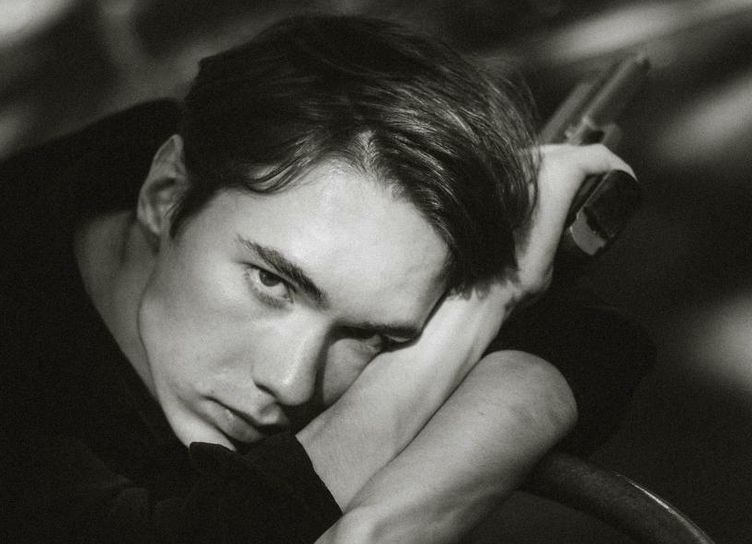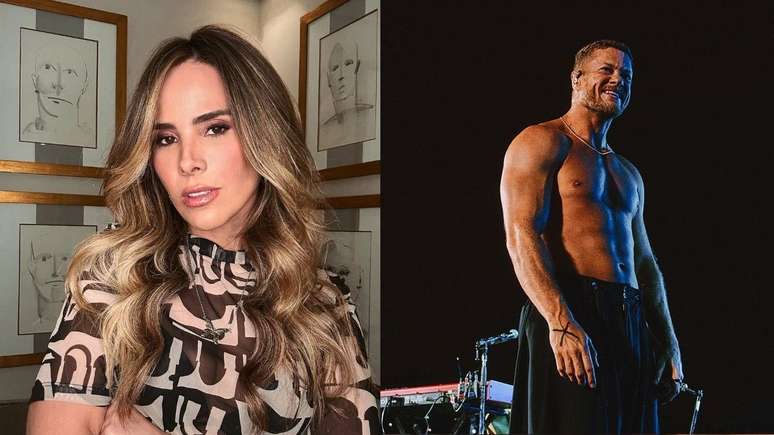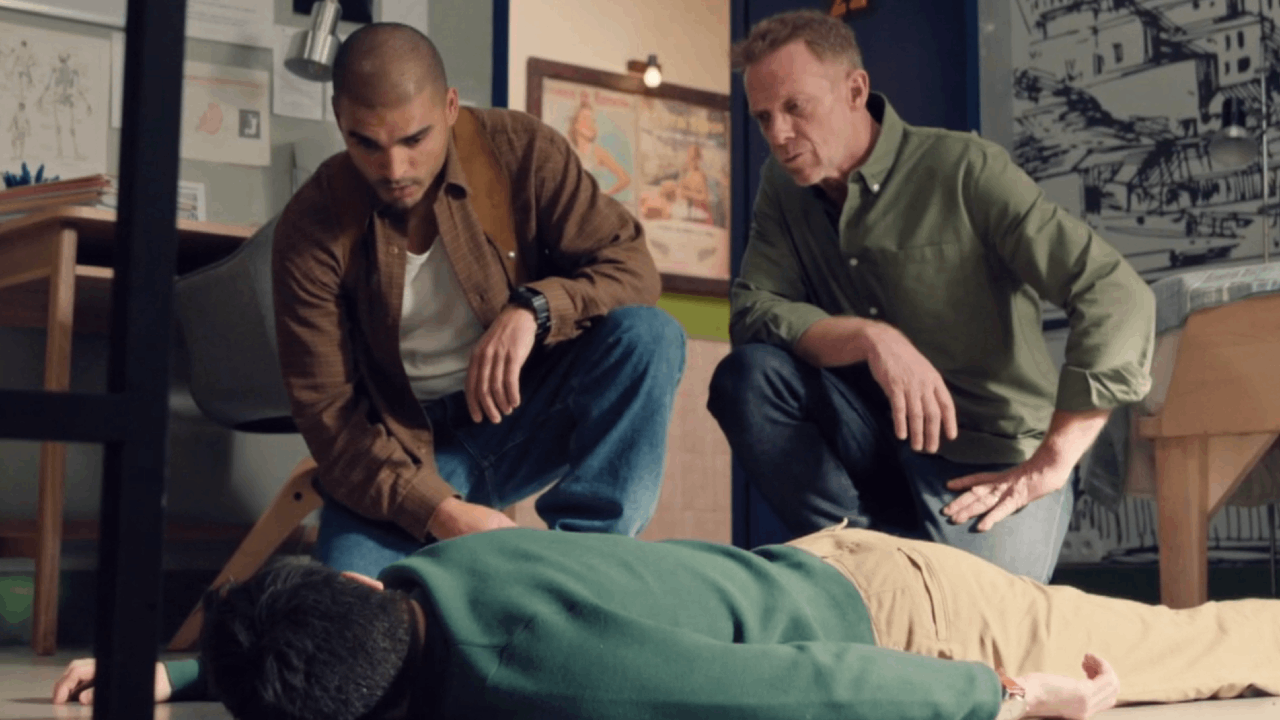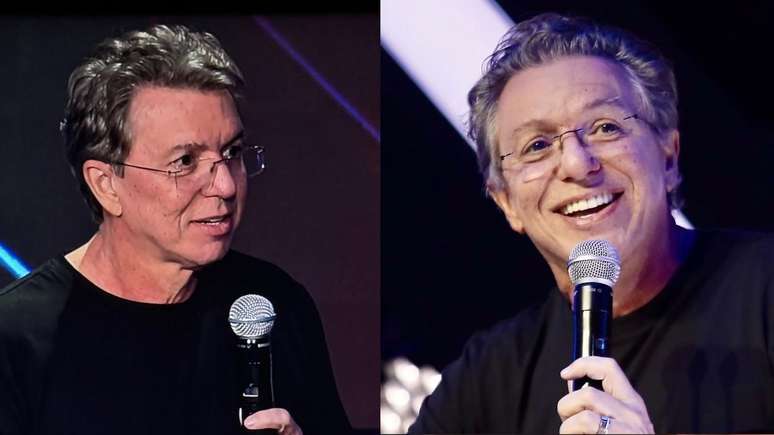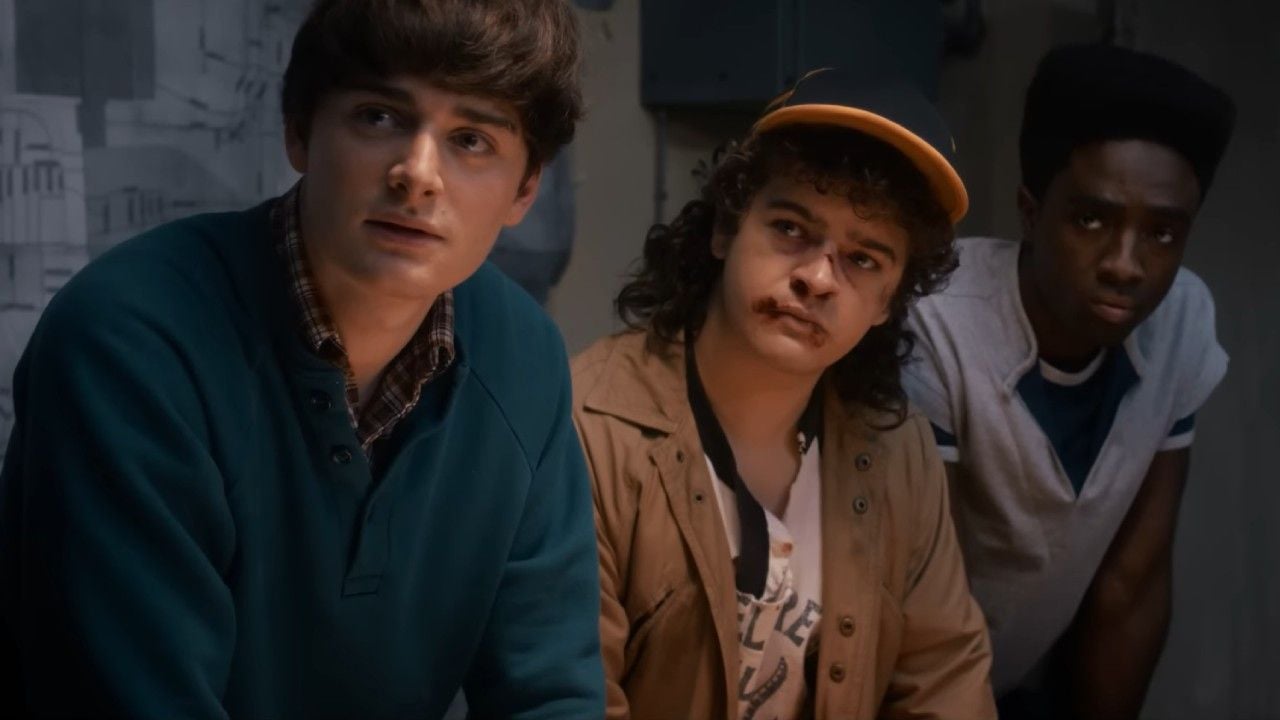______________________________
The series “Stream”, which was very much awaited after the “Pilot” festival, reached the air. In your opinion, why did this project shoot even before it was released?
I am also looking forward to this series. We shot it for such a long time – it seemed that this day might not come at all. This is an interesting story, and, as it seems to me, there has never been anything like it. It is even surprising that in 2023 we will talk about this. And also “Stream” is a funny series with characters familiar to many Russians, it is about the school that we all went through.
You said that you have three criteria when choosing roles: a great script, a great director, a great character. Which one became decisive for “Stream” and why?
In “Stream” a triple combo came together. The pilot of “Stream” happened long before those projects with my participation that have come out now, and, perhaps, “Stream” was at the origins of the formation of these criteria.

How do you explain to yourself why Zhora chose this particular method of dealing with the surrounding injustice and bullying? And what do you think, were there any other options in his situation?
I would like to say that he could just talk to everyone and say: guys, you don’t need to do this, let’s live together. But it’s not interesting! It seems to me that he thought about how to save himself, and came to such a decision.
One of the main issues that is raised in the series is school bullying. In an interview, you said that it’s not an empty phrase for you either, that you were bullied because of being overweight. How did you deal with it?
Bullying is a terrible thing, not at all a cool joke that people then deal with as adults. Bullying entails a huge number of complexes and problems. It would be great if this did not happen in childhood. Of course, bullying must be fought – either put on a camera, like Zhora, or be friends with people who will say that all this is not true and nonsense.
With complexes about the body, by the way, projects helped me, in which there was a lot of my naked body. I looked at myself from the outside and realized that everything is fine and you can relax. Even after school, I had complexes hidden under my T-shirt. The universal advice, probably, is that you need to accept yourself, love yourself, and if it’s really hard, go to a psychotherapist.

What topics of the series still seemed important to you?
Relationships between fathers and children, first love. And also, like Gogol in “The Inspector General” – such an administrative fear of a conditional auditor who checks everything. We called this the “Stream” effect. We had a location, Zhora’s yard, it was in a real residential yard. At one point, we arrived there and could not shoot, because the workers in front of the entrance began to lay a hole. The film crew was already almost hysterical – the sun was setting, time was evaporating. It turned out that local residents had been complaining to the administration about this pit for a hundred thousand years, and only after our filming days, when the administration found out that the yard would be shown on television, the problem was solved.
The creators of the series said that they originally planned to make you the main shooter in the first person, and you even had tests with a camera, but it turned out to be impossible to act and shoot at the same time. Tell us about this experience, what exactly was the difficulty and how did you solve the problem in the end?
This helmet weighed approximately 9 kg! If I did it, after a week the shooting would probably stop, because I would have to go to a sanatorium. The helmet that I wore had an imitation of a camera, but at the same time, we also had helmets with GoPro, I shot about 20 percent of the frames with it myself. We even joked that my name should be on the list of operators. In general, when we filmed the pilot episode, the helmet was terribly uncomfortable: the elastic band did not reach the chin, then it pressed. But then we understood the technology, and they made me super-comfortable helmets.
The series is partly filmed from the first person, screenwriter Rishat Mukhtarov said that he was inspired by the film “Hardcore” by Ilya Naishuller. How do you like this movie?
I watched Hardcore, and at that moment it seemed to me that this was a super-new and trendy movie. My head was spinning while watching, I think the creators were counting on this.

The creators of “Stream” set themselves the task of recreating the atmosphere of a real school: somewhere toxic, and somewhere lamp. In your opinion, how did it work out in the end?
We filmed in a real school in the city of Dzerzhinsky, in the series there are scenes with real lessons. We waited for the bell to ring from recess to the lesson, and went to shoot. Schoolchildren did not interfere with us, but sometimes they bullied us, and sometimes even, as in the series itself, they shouted “Stream! Stream!”. It turned out such a mixture of life and cinema, very interesting.
You said that you are usually not against improvisation in the frame, if the director allows it. How was it on the set of “Stream”? Did you quickly manage to find a common language with Rustam Ilyasov?
Our interaction with Rustam Ilyasov turned out cool. Rustam allows you to live in the frame, offer ideas, and even if he doesn’t like something, he allows you to improvise and then says that he will cut it out (laughs). Our screenwriter Rishat Mukhtarov was always on the set, and it seemed to me that it was very cool – it was possible to immediately clarify points that were not completely clear. He, like a father, explained everything to us and laid it out on the shelves. And Rishat also allowed the actors to think of something. But sometimes he didn’t! (laughs).
The authors define the genre of the series as a social comedy. How would you describe the atmosphere that “Stream” is saturated with? Is it more funny or more sad?
I already mentioned Gogol’s The Inspector General, this is a social comedy, funny and sad, just like in real life.

You recently presented your updated image to the public. You have to understand, is this your image for the film “Jura the Janitor”? Tell us about this project, who do you play there?
I’m playing a character that doesn’t look like a schoolboy at all – a fashion photographer who is rather on the side of evil, but this is not accurate. He is a confused person.
You joked about wanting to play Harry Potter, but it turned out to be Draco Malfoy…
I was only talking about looks. But I love Harry Potter in general.
Also, with your participation, the project “Passion for Matvey” is coming out soon. How deep did you have to dive into the religious theme while working on it?
For me, this was an extremely unexpected project. Before filming, the religious theme seemed to me a parallel universe, but it turned out that it wasn’t, religious people are the same as us. On the set, I constantly asked questions, was interested in what religious people can and cannot do, because it seemed to me that this is a closed world with its own laws. Of course, it does have its own laws, but the people themselves are the same as we are, they live through all the same feelings, cope with the same problems.
My hero, the altar boy Matvey, comes from an Orthodox family, his father is the rector of the church. Matvey grew up in a religious environment, but at one point he meets a girl from the modern world. Matvey begins to make new discoveries for himself.
Would you like to sit in the director’s chair one day? Or maybe write some kind of story as a screenwriter?
I would not want to yet – I get great pleasure from what I am doing now

Source: Hellomagazine
Jason Root is a writer at Gossipify, known for his in-depth coverage of famous people in entertainment, sports, and politics. He has a passion for uncovering the stories behind the headlines and bringing readers an inside look at the lives of the famous. He has been writing for Gossipify for several years and has a degree in Journalism from UC Berkeley.

